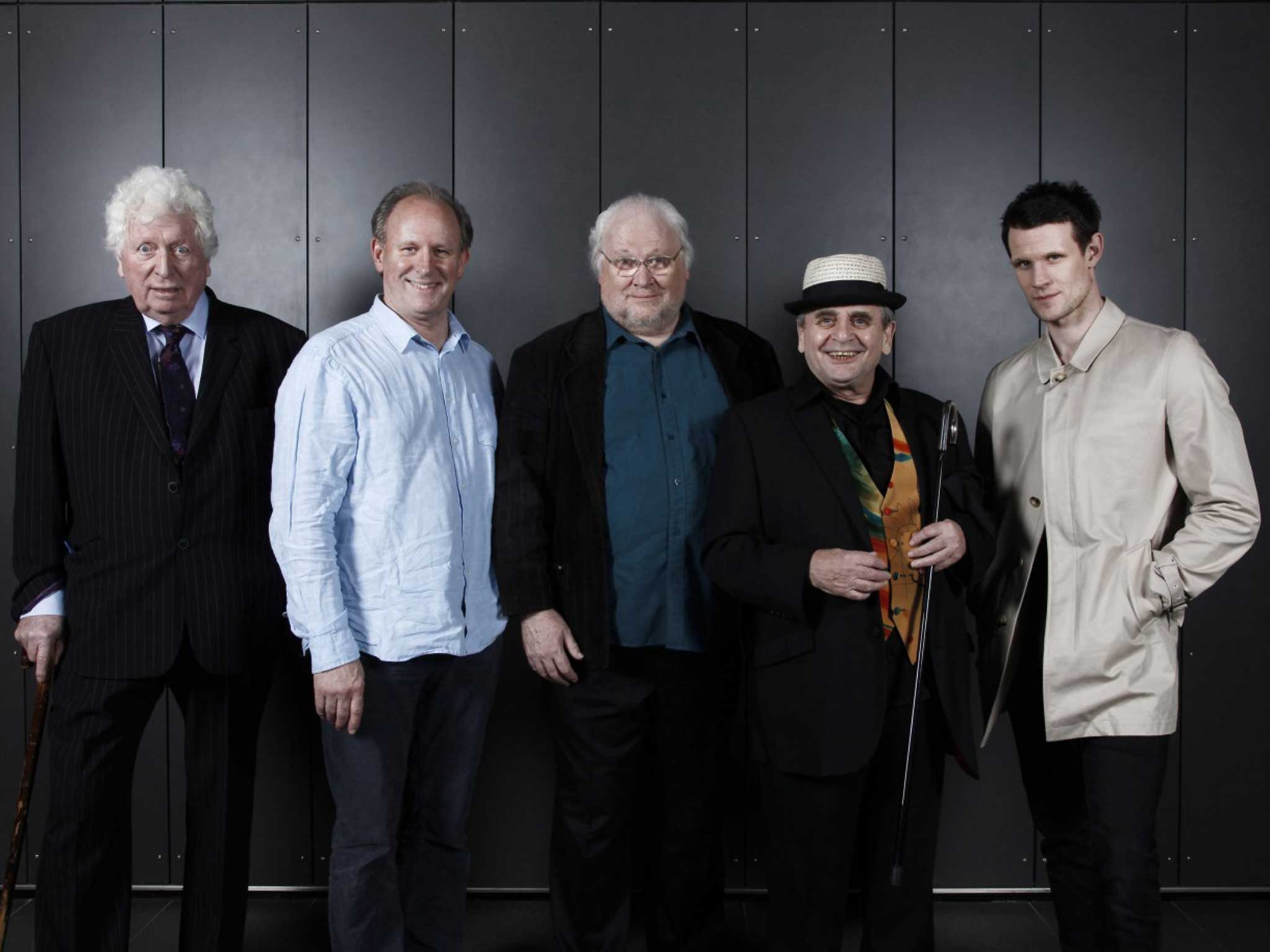World tunes in to Doctor Who for 50th-anniversary episode
One-off anniversary episode watched by fans in 94 countries worldwide

Your support helps us to tell the story
From reproductive rights to climate change to Big Tech, The Independent is on the ground when the story is developing. Whether it's investigating the financials of Elon Musk's pro-Trump PAC or producing our latest documentary, 'The A Word', which shines a light on the American women fighting for reproductive rights, we know how important it is to parse out the facts from the messaging.
At such a critical moment in US history, we need reporters on the ground. Your donation allows us to keep sending journalists to speak to both sides of the story.
The Independent is trusted by Americans across the entire political spectrum. And unlike many other quality news outlets, we choose not to lock Americans out of our reporting and analysis with paywalls. We believe quality journalism should be available to everyone, paid for by those who can afford it.
Your support makes all the difference.The Time Lord can travel through space and time, so it’s no surprise that last night’s 50th anniversary episode of Doctor Who was watched by fans in 94 countries worldwide.
The one-off anniversary episode delved into the origins of the Doctor as Matt Smith travelled back to Elizabethan England to solve a “murderous plot” with the help of former Time Lord David Tennant, Jenna Coleman, Billie Piper and John Hurt.
Familiar enemies that have sent of millions of children – and some adults – scurrying behind the sofa since the first show in 1963 made a return, with the Daleks and shape-shifting aliens the Zygons battling the Doctors.
Since the franchise was relaunched in 2005, it has attracted 80 million viewers worldwide and yesterday, in what the BBC called the largest “largest simulcast of a TV drama in history”, “The Day of the Doctors” was screened in more than 1,500 cinemas worldwide and on television in countries from Canada to Columbia and Brazil to Botswana. It was also broadcast in Ethiopia, where last month Doctor Who fans tracked down nine lost episodes from the show’s first two series.
In America, where it ranks as the most popular show on BBC America and where viewing figures have grown 51 per cent in the past year, it was broadcast in cinemas and bars across the country, including The Way Station Bar in Brooklyn, New York, known for its life-size Tardis.
“The response has been amazing,” Andy Heidel, the bar’s owner, told NBC News. “People are just coming out of the woodwork and foaming at the mouth.”
Doctor Who sits beside Top Gear and Dancing with the Stars as one of BBC Worldwide’s biggest earners; in the US alone it helped the corporation’s commercial arm generate $550m in the last financial year.
Neil Perryman, a long-time fan of Doctor Who and author of Adventures with the Wife in Space, the story of how he persuaded his Doctor Who hating wife to watch all 697 episodes of the show, said: “Doctor Who has always been a global cult phenomenon, but since its relaunch it’s proved so popular because it’s far more accessible to people who aren’t hardcore science-fiction fans. It’s a show for the whole family.”
In the UK, last night’s episode was screened at more than 400 cinemas, while in London 8,000 fans in costume converged on the ExCeL Centre near Canary Wharf for a Doctor Who festival to celebrate the broadcast. Mike Green, 29, dressed as David Tennant’s Time Lord, said: “It’s taken a long time to get the outfit right, and I wouldn’t like to say what it cost.”
Anthony Wainer, from the Doctor Who Appreciation Society, said the secret of the show’s success was its “ability to keep rebooting itself .... If you believe the basic premise, that this time traveller can go anywhere in time and space, you’re hooked.”
Join our commenting forum
Join thought-provoking conversations, follow other Independent readers and see their replies
Comments